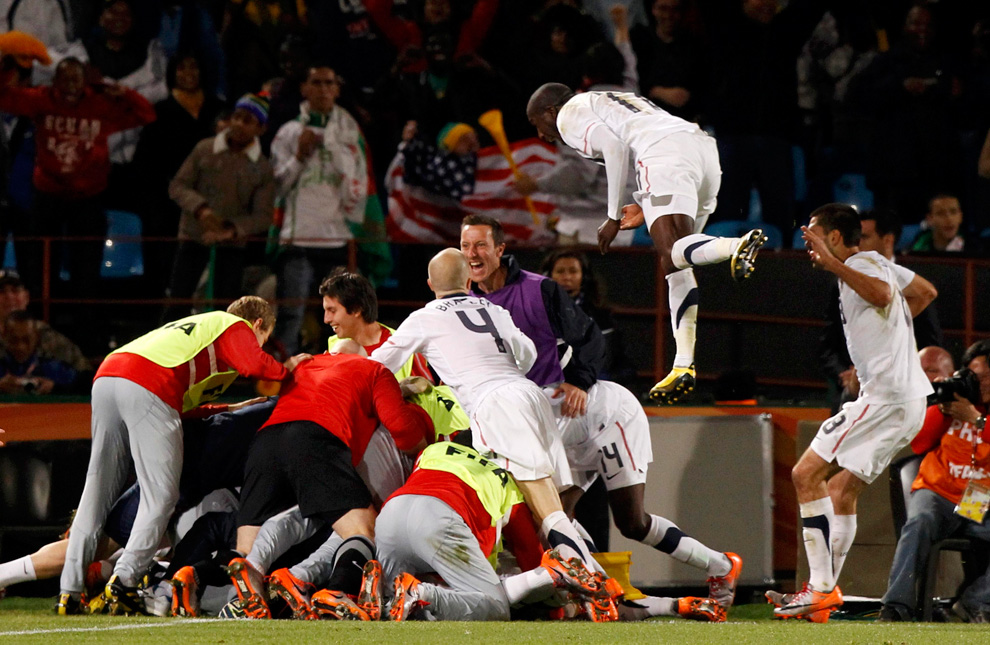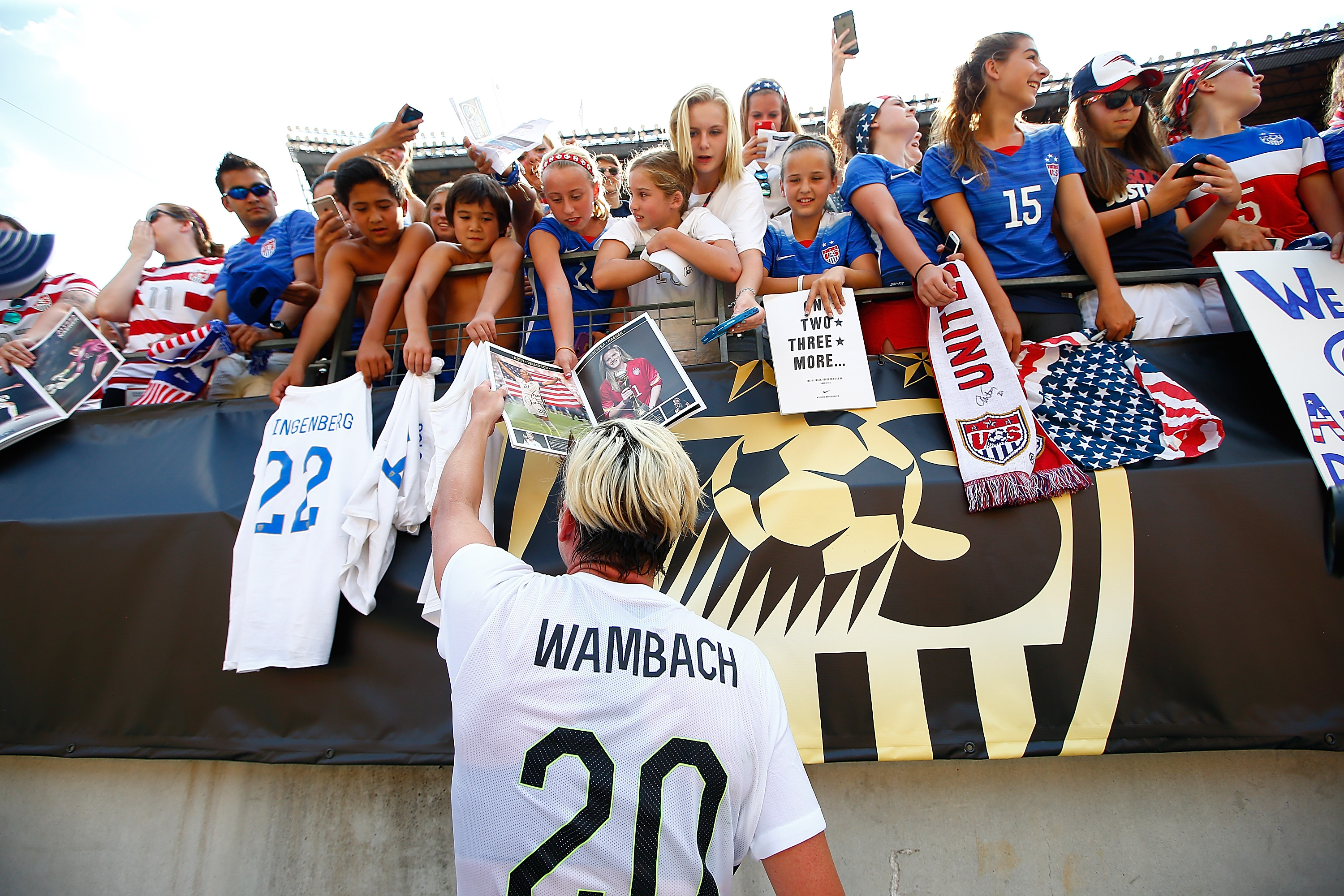
during the Bundesliga match between Borussia Dortmund and FC Bayern Muenchen at Signal Iduna Park on April 4, 2015 in Dortmund, Germany.
March still hasn’t ended and we have already seen some big transfer moves being touted for the summer. Liverpool and West Ham seem to be leading the charge with Joel Matip and Havard Nordtveit (reportedly) already signed up to the respective clubs already. Beyond official transfer, we also have discussions for summer transfers occurring. All one needs to do is look at the last week to see stories about Mario Gotze, Granit Xhaka, or Romelu Lukaku (to name only a few). Even planned managerial switches are being announced earlier than previous years, just looked at Pep Guardiola to Manchester City. It all raises the question, is the summer transfer window just a formality now? Generally, we can all agree the answer is yes, but that’s not necessarily a bad thing.
By getting deals done early, while your rivals are potentially focused on other things, it gives your club the chance to sign their top choice without risking a last minute swoop. Consider this: West Ham have almost certainly signed Havard Nordtveit on a free. There will be many clubs that could be interested in a player of his versatility that could potentially offer more money or a guarantee of Champions League soccer. Arsenal or Tottenham specifically come to mind. These two teams will have other targets before Nordtveit, however, and will pursue them first. By potentially signing the defender/midfielder before those other two teams even gave him a thought, West Ham have ensured that they got their man.

DUBLIN, IRELAND – MARCH 25: Granit Xhaka of Switzerland in action during the International Friendly match between Republic of Ireland and Switzerland at Aviva Stadium on March 25, 2016 in Dublin, Ireland. (Photo by Shaun Botterill/Getty Images)
An extension of this advantage is that if your club closes a deal early, before other clubs get involved, it prevents a bidding war, saving the club potentially millions. A prime example of this is Granit Xhaka. Arsenal are reportedly very close to signing the player. The only other club who have reported interest is Liverpool, though they have yet to make the degree of contact that Arsenal have. While the fee for the player is high, reportedly £33m, if other teams started sniffing around, with Manchester City (among others) potentially interested, that price could continue to climb.
Bringing players in before the transfer window opens also means the player knows where they will be come next season and will be able to join their new club as soon as the current season is over. This gives an extra amount of time to bed into the club, which is one of the more difficult tasks when moving. They will be able to meet their new teammates and the staff around the club, while also becoming acclimatized to the area. It also gives the player more time to find a home near the club, instead of living out of a hotel for a few months.
There is also a benefit for the selling club, as well. Deals completed early or before the window give the selling club more time to replace the player. The effect is further bolstered if the deal hasn’t been announced and teams don’t know the selling club has money. This allows the selling team to replace the outgoing player even cheaper. This, of course, can further benefit the buying team because they can get their target even cheaper.
Finally, getting transfers done early lessens the chance of panic buys. Think about it this way, a club has a need for a specific type of player. We’ll say a box to box midfielder. At the top of this team’s list is Player 1. They start negotiating in June and it looks like a deal can be done. After a few weeks of negotiating, though, the talks fall apart and it becomes clear that Player 1 will not be moving. So they go to their next target, Player 2. He’s not as good, but still better than their current options. It’s now early July, and his team knows you are in the market for this type of player. As a result, his price has been raised £5m. It seems like a good deal, so talks continue. Both clubs agree, but the buying club can’t agree a contract with Player 2, and talks. This continues for weeks. This is their top priority signing, but they have other positions that need taken care of too. It is now the last week of the transfer window and that position is still open. The club now turn to throw stupid money at a player they might not have scouted as well, but fits the bill. This is the definition of a panic buy. Had they started earlier, there was a much greater chance that they would have gotten one of their earlier targets or have scouted their eventual target better.

LONDON – AUGUST 16: Samir Nasri of Arsenal celebrates after he scored the first goal for Arsenal during the Barclays Premier League match between Arsenal and West Bromwich Albion at the Emirates Stadium on August 16, 2008 in London, England. (Photo by Phil Cole/Getty Images)
This summer causes completing your transfer business early to make even more sense. With the Euros, Copa America, and World Cup Qualifying, the summer break will be inevitably interrupted. Getting these moves done early will allow for the greatest amount of continuity for both the team and the players. Summer tournaments also have a habit of inflating players’ transfer fees, so buying a player you are interested in before the tournament makes sense, as well.
The only real downside is the effect it can have on the player that is transferring. Once a deal is agreed to go through, there really isn’t much of an incentive for the manager of the selling club to play the outgoing player, and the player won’t have much incentive to play at their fullest ability and risk injuring themselves. This really depends on the player, however. All one has to do is look at a player like Samir Nasri, who had his best form in an Arsenal kit after it became clear he was going to Manchester City.
Ultimately, transfers are going to be completed earlier and earlier. This isn’t a bad thing, though. It might be a distraction to some in the middle of the season, but it will also lead to better scouting of players and fewer panic buys. The transfer windows are here to stay, for now, but that doesn’t mean transfer business will be kept within them.






